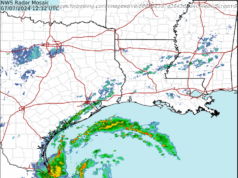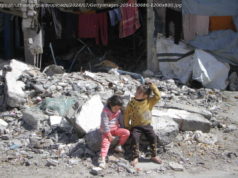As The Century Foundation’s Dina Esfandiary argued, however,
The United States has little global support for any potential conflict with Iran as President Donald Trump and his administration continued to split with allies by ramping up tensions with the Islamic Republic, experts have said.
With the U. S. drawing up military options against Iran and pulling diplomatic staff Wednesday from neighboring Iraq amid alleged Tehran-tied threats to U. S. interests in the region, temperatures were running even higher than usual in the Persian Gulf. The U. S., traditionally a nation of robust international alliances, has managed to gradually erode its partnerships since Trump took office in 2017, however, and Washington has found itself largely alone in its approach to the current crisis.
Having unilaterally walked away from the 2015 Iran nuclear deal also signed by China, the E. U., France, Germany, Russia and the United Kingdom and having threatened the world with sanctions for trading with Tehran, a hawkish White House’s «maximum pressure» campaign has been met with deep skepticism by friends and foes alike.
«The administration’s policy has clearly been to portray Iran as the bad guy here. Iran isn’t the bad guy here for a change,» Dina Esfandiary, a fellow at The Century Foundation think tank and the Belfer Center at Harvard University’s Kennedy School. «It’s important to highlight that, on this issue, America is really isolated; Europe, Russia, China, no one is really buying into this push against Iran.»
An F/A-18E Super Hornet takes off from the flight deck of the Nimitz-class aircraft carrier USS Abraham Lincoln, May 10, in the Red Sea. The carrier strike group was sent ahead of schedule based on U. S. reports of alleged «troubling and escalatory indications and warnings» disputed by Iran as a deliberate attempt to provoke a war. MASS COMMUNICATION SPECIALIST SEAMAN DAN SNOW/U. S. NAVY/DEPARTMENT OF DEFENSE
Iran has had a mostly strained relationship with the West since the 1979 Islamic Revolution that ousted its monarchy, which had been propped up by the U. S. and the U. K. Washington immediately cut diplomatic ties with Tehran and began to impose some sanctions shortly after the U. S. embassy hostage crisis that followed the uprising, but it was not until 2006 that the United Nations Security Council imposed international restrictions on the revolutionary Shiite Muslim power, accusing it of potentially pursuing nuclear weapons.
Iranian officials continued to maintain that their nuclear program was strictly for peaceful purposes, but in 2015, the country entered into a landmark deal with the five U. N. Security Council nations, plus Germany and the E. U., agreeing to significantly curb nuclear production in exchange for sanctions relief. The accord, known officially as the Joint Comprehensive Plan of Action (JCPOA), was widely hailed as a diplomatic milestone and it saw Tehran agree, but critics like Trump felt it did not go far enough to stop Tehran from funding militant groups and attaining ballistic missile technology.
While the International Atomic Energy Agency repeatedly found Iran to be in compliance with the deal and its other signatories still support it, Trump pulled the U.
Домой
United States
USA — Events U. S.-Iran Crisis: Trump Administration Has Little International Support for War






